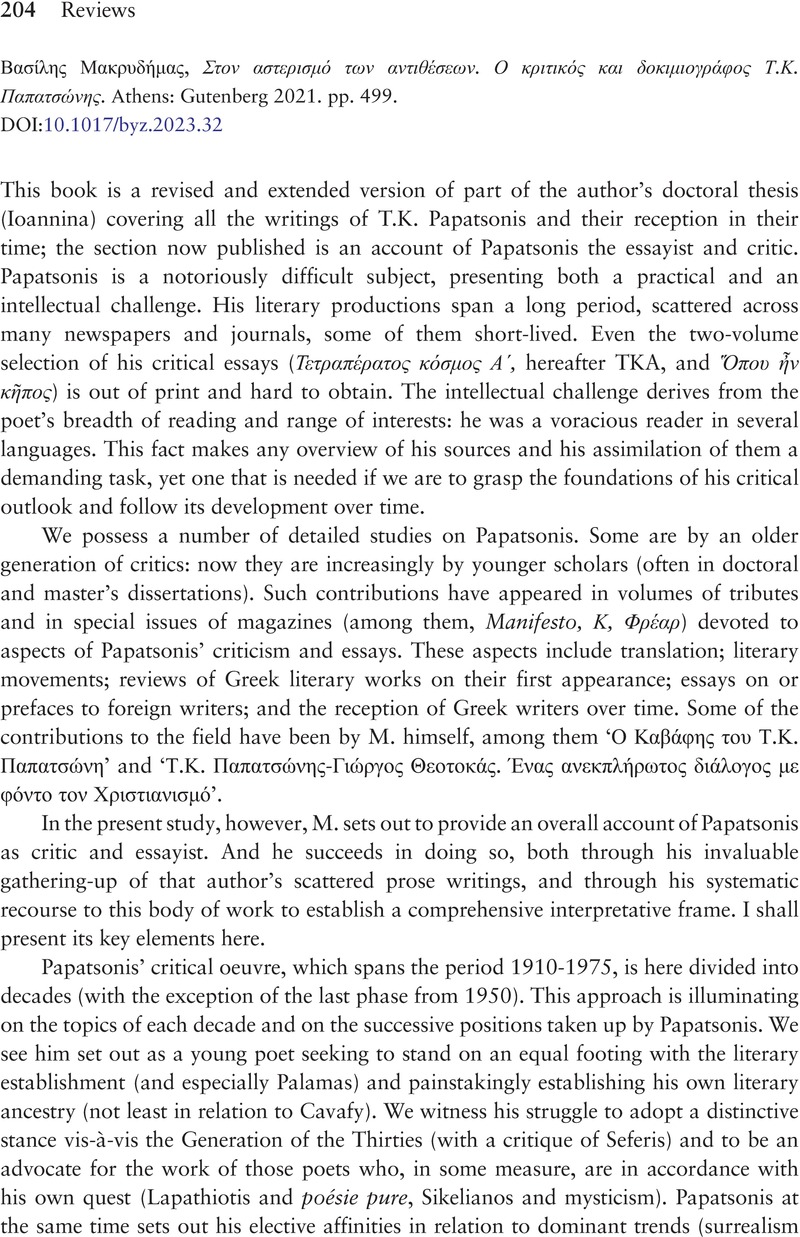No CrossRef data available.
Article contents
Βασίλης Μακρυδήμας, Στον αστερισμό των αντιθέσεων. Ο κριτικός και δοκιμιογράφος Τ.Κ. Παπατσώνης. Αthens: Gutenberg 2021. pp. 499.
Review products
Βασίλης Μακρυδήμας, Στον αστερισμό των αντιθέσεων. Ο κριτικός και δοκιμιογράφος Τ.Κ. Παπατσώνης. Αthens: Gutenberg 2021. pp. 499.
Published online by Cambridge University Press: 22 December 2023
Abstract
An abstract is not available for this content so a preview has been provided. Please use the Get access link above for information on how to access this content.

- Type
- Review
- Information
- Copyright
- Copyright © The Author(s), 2023. Published by Cambridge University Press on behalf of the Centre for Byzantine, Ottoman and Modern Greek Studies, University of Birmingham


